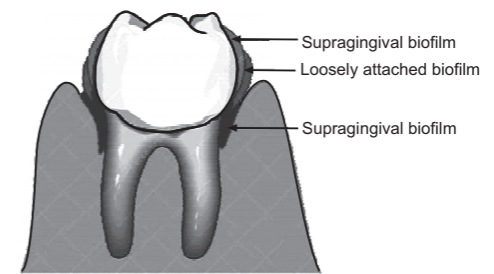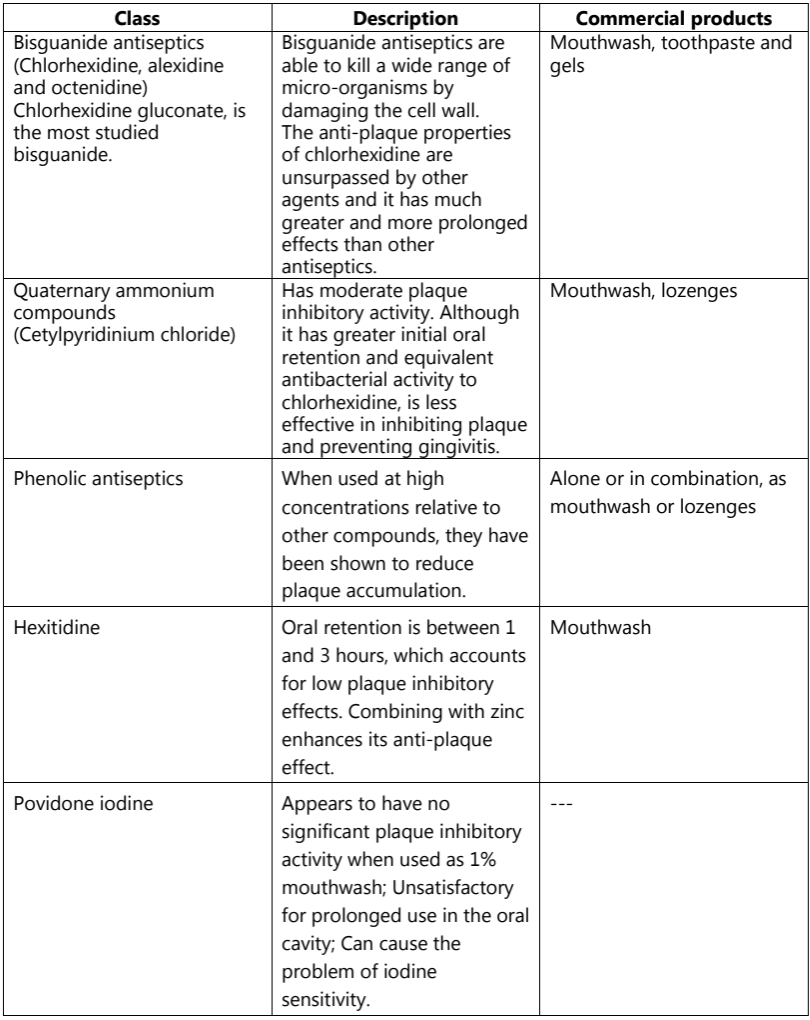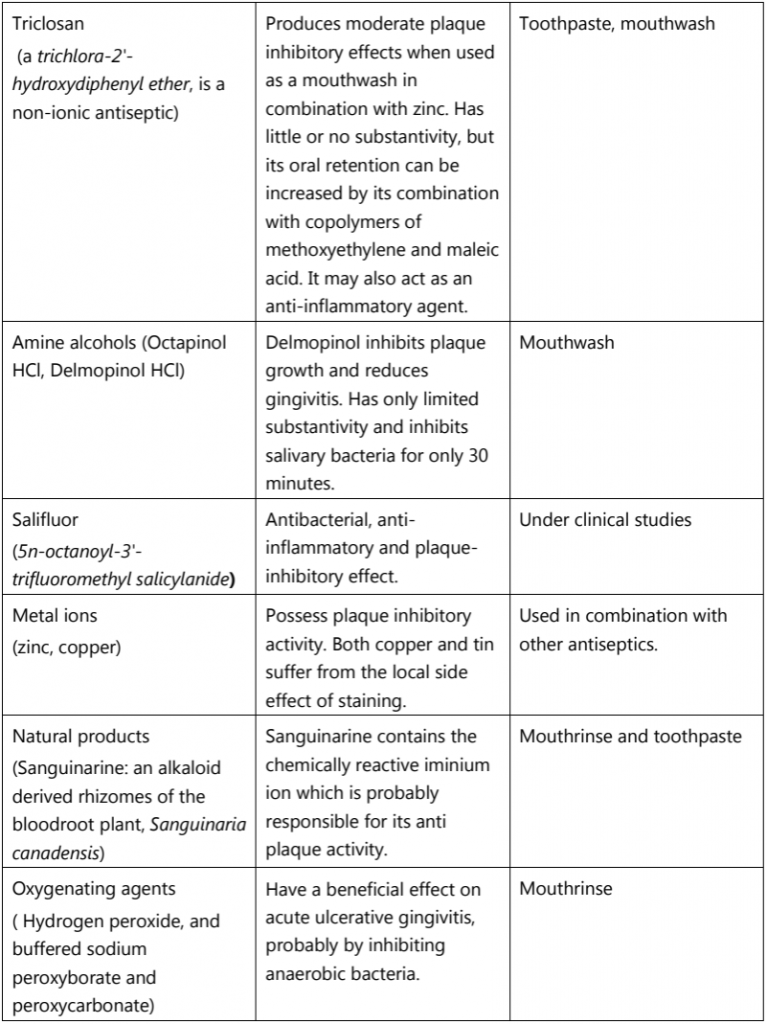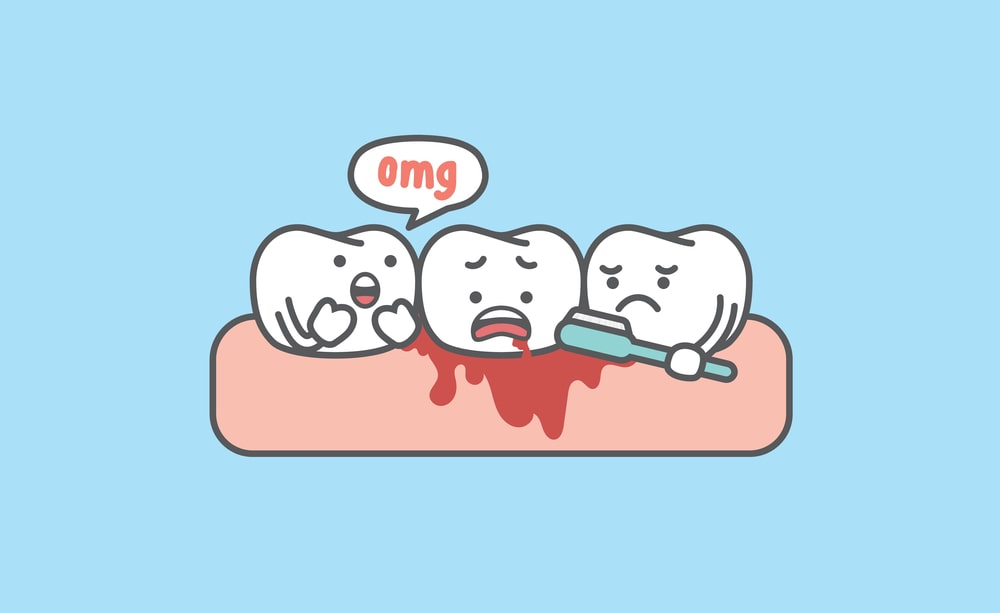Bleeding is often one of the first signs when there’s a problem with the gums. Bleeding that is accompanied by red, swollen gums, tenderness, bad breath, or tooth sensitivity are symptoms of gingivitis, an early stage of gum disease. Bleeding accompanied by receding gums is also a common symptom of gum disease.
Causes of Bleeding Gums
Rarely, bleeding gums may be a symptom of other problems about the mouth or body. While bleeding gums are usually a signal of gum disease, causes of bleeding gums can also result from:
- Brushing too hard.
- A vitamin deficiency.
- Taking blood thinners or other medications.
- Bleeding or clotting disorders.
- Hormonal changes during pregnancy, resulting in pregnancy gingivitis.
- Dentures that don’t fit.
- Mouth sores.
- Other medical problems, including diabetes, heart disease, leukemia, or scurvy. Regardless of the situation, it’s important not to self-diagnose. Only a dentist or medical professional can determine the causes of bleeding gums and offer the right treatment.
Bleeding Gums Treatment
The best treatment is to remove the plaque bacteria that cause gum disease. When dental plaque builds up, it turns into tartar, a hard, sticky substance that adheres to your teeth. Without regular teeth cleanings, dental tartar can become a breeding ground for even more plaque, which can creep below the gum line and lead to an infection that causes bleeding gums. Seeking bleeding gums treatment at the first sign of a problem can help reverse gingivitis and helps to prevent periodontal disease. Other treatment options, such as scaling and root planing procedures, slow down the process of gum disease. In case of an advanced form of periodontal disease, therapy or in some cases, dental surgery may be needed to control the bleeding.
Therapy and Care
The best natural remedy is vitamin C. But if eating citrus fruits do not bring about the intended result, antibacterial toothpaste is recommended. If the gums bleed after brushing and are swollen and red, it is indicative of gingivitis. Gingivitis is the result of bacteria procreating and irritating the gums, which makes them sensitive and painful, and can cause them to bleed. Antibacterial toothpaste that can fight germs for up to 12 hours, helps to fight plaque and tartar and prevents gingivitis. The toothpaste can effectively reduce plaque, gingivitis, bleeding gums and slightly reduce tooth decay. Antimicrobial and plaque inhibitory agents in mouthwashes or toothpaste, used to inhibit bacterial plaque formation and thus to prevent or resolve chronic gingivitis, can only affect supragingival plaque (see Fig.1). They should be clearly distinguished from agents directed against subgingival plaque which may be used to treat chronic periodontitis and which needs to gain access to the periodontal pocket in sufficient concentration to produce their effect. For supragingival plaque control, several antimicrobial agents have been studied and they can be divided into biguanide antiseptics, quaternary ammonium antiseptics, phenolic antiseptics, other antiseptics, oxygenating agents, metal ions, and natural products (Table.1).

Table.1: Compilation of antibacterial agents used for supragingival plaque control to prevent or resolve chronic gingivitis


Make sure you also check our other amazing Article on : Gum Disease
